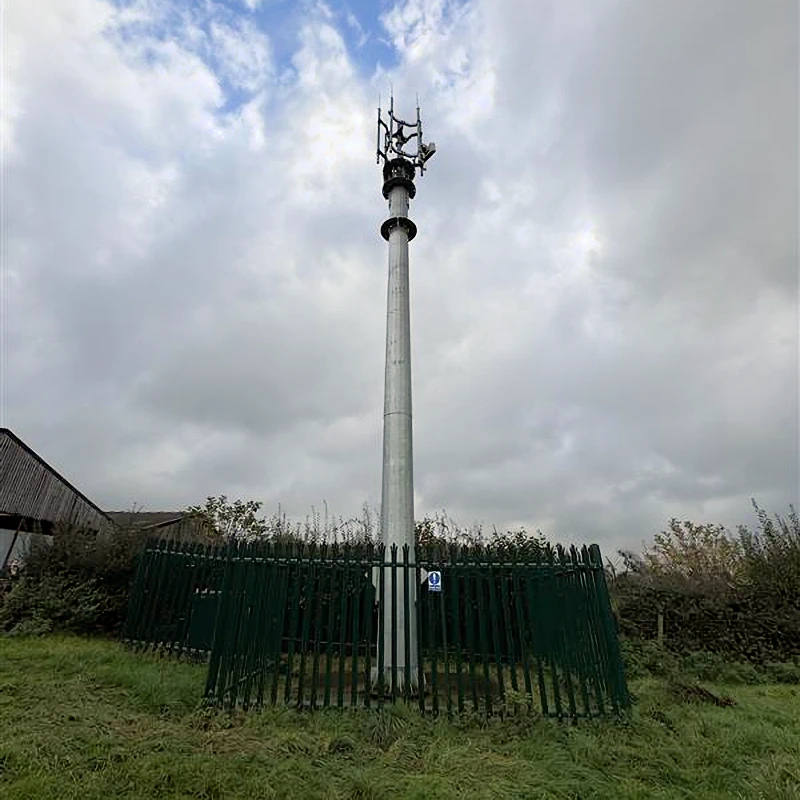Abrdn-backed rural broadband ISP Airband, which has a network that covers rural parts of Wales and South West England via a mix of Fixed Wireless Access (FWA) and Full Fibre (FTTP) tech, has today become the “first operator in Europe” to deploy Tarana’s next-gen wireless (ngFWA) platform – offering “fibre-class speeds” of up to 400Mbps.
The ngFWA solution from California-based Tarana is a new network technology, which in the UK will be able to harness the 5GHz radio spectrum band (C) and claims to be able to deliver ultra-fast speeds at ranges of up to 7 kilometres – ideal for reaching remote rural communities. This should also give the provider a coverage boost over their existing kit.
Airband recently began conducting trials of the new ngFWA technology, which has already gone live at 5 of their 450 mast sites (a 6th site in Illfracombe will follow next month). Many of those mast sites still use the provider’s legacy wireless equipment, which will eventually need replacement, and that often presents providers with an opportunity to upgrade. The first site to go live was Tenbury Wells. The new service also covers Penrhyn Bay, Barnstaple, Bovey Tracey & Newton Abbot (Same mast) and Llangollen.
The provider’s related AirSpeed packages in these ngFWA areas tend to promise download speeds of up to 400Mbps, although Airband’s engineers are currently reporting speeds over 600Mbps at installation (no doubt assuming ideal conditions and limited strains on their local network capacity).

“Tarana has reinvented fixed wireless by developing true interference cancellation technology and eliminating the need for line of sight. These features greatly expand the scope of reliable broadband and changes the game for internet service providers. Utilising their established fibre network as backhaul, Airband demonstrates the true benefits of an innovative hybrid network,” said the announcement.
Kash Rahman, Managing Director at Airband, said:
“With Tarana, we’re putting connectivity first. ngFWA has made it simpler for us to grow our network and connect more homes and business. We look forward to bringing high-speed service to more communities that are waiting for a better broadband option.”
Basil Alwan, Tarana CEO, said:
“We are thrilled to see ngFWA technology taking off in the UK. Airband is dedicated to their customers, and we are honoured to support them as they expand into new territories to further narrow the country’s digital divide.”
At present there’s not a lot of detail about Airband’s wider roll-out plan for the new ngFWA technology, but the operator said they would also be aiming to increase the speeds across their existing FWA network to a minimum of 100Mbps with “other hardware already available in the UK“. And, through their partnership with Tarana, they’re planning a phased roll-out of ngFWA over the next 12-months to deliver increased speeds of 150Mbps – 400Mbps in areas where there is a requirement for better broadband speeds and market demand.
The announcement also claims that Airband’s network currently spans “more than 440,000 premises in over 200 communities across 7 counties“, which is up significantly from the 315,000 premises claimed earlier this year. Some of that increase will be due to their FTTP deployments, while others are likely to be caught via the expanded coverage of ngFWA and existing wireless deployments.
The provider told ISPreview that the above figure broke down as being 175,000 premises (RFS) via “fibre” (FTTP) and 265,000 premises via wireless (FWA RFS). Technically speaking, the wireless side of Airband’s network can actually reach many more premises than this, but they only include those premises where the speeds they can deliver would be either the same or better than what is already available to the property (e.g. via rivals).
However, accurately gauging wireless coverage and coverage quality is a notoriously difficult thing to do, which is why we often take such figures with a pinch of salt. As a side note, Tarana has a YouTube channel with a number of videos that offer some useful insights into the setup of their new network technology and its advantages, such as the one below from the USA.

